Femia > Health Library > Your cycle > Health > Signs of ovulation after stopping taking birth control pills
Signs of ovulation after stopping taking birth control pills
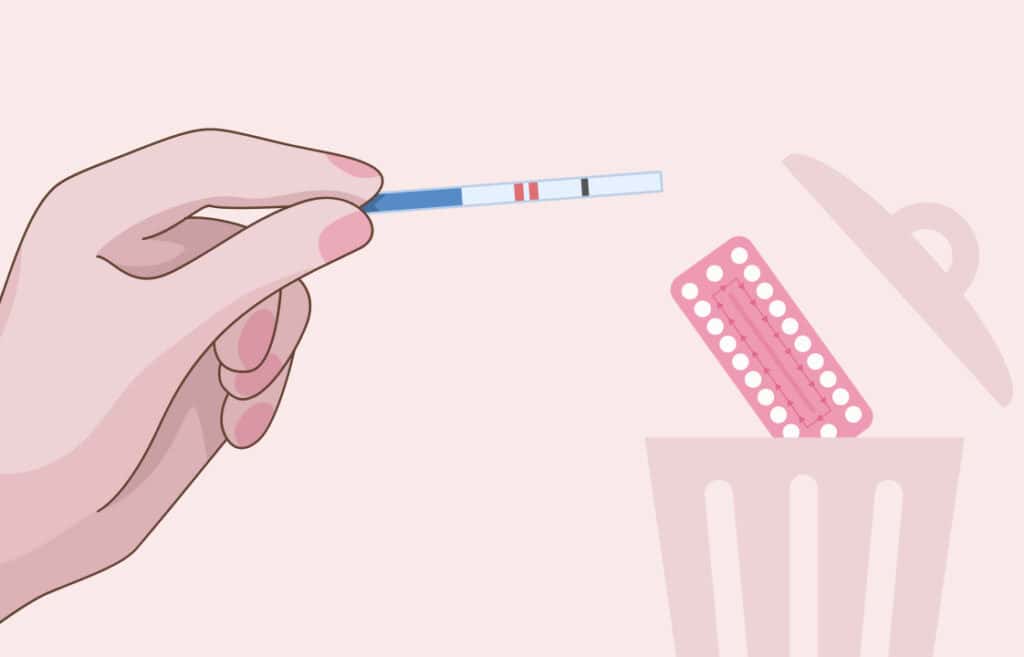
- Updated Feb 10, 2025
- Published
CRAFTED BY HUMAN
Crafted by human At Femia, we provide accurate and up-to-date information at every stage of your journey, from trying to conceive, pregnancy and postnatal support. All content is created by a real person based on in-depth research and own professional experience. Femia ensures that you will receive expert advice, strict accuracy and a personalized approach from our authors/medical experts. Learn more about our editorial policy.
FACT CHECKED
Fact checked At Femia Health, we maintain the highest standards of editorial excellence in delivering content focused on helping you conceive, guiding you through pregnancy, and supporting you postpartum. Explore our content review principles to learn how we ensure the accuracy and quality of our health and lifestyle tips for every stage of your journey.

Created with Hector Chapa, MD, FACOG, Clinical associate professor, Obstetrics and Gynecology Texas A&M University, College of Medicine in Bryan-College Station, USA
When you stop taking hormonal birth control, it can take your body time to recover and resume a regular menstrual cycle—even several months. So, don’t worry if you don’t ovulate right away. However, if you experience severe withdrawal symptoms, it is best to consult your healthcare provider.
How soon after stopping the pill will I ovulate? This is a common question among women who discontinue hormonal birth control in an attempt to conceive.
However, there’s no one-size-fits-all answer; it varies from person to person. In this article, we’ll cover several methods you can use to determine when ovulation will occur for you.
Earliest ovulation after stopping birth control pills
Unfortunately, there is little research on how recent oral contraceptive (OC) use affects the menstrual cycle. In one study, Christian Gnoth compared 175 women who stopped taking OCs with 284 women who had never used them. The women who had recently stopped taking OCs had noticeably longer cycles; however, the study found that it took less than nine months for the cycle to return to normal.
Nevertheless, many factors can affect how quickly you ovulate.
Hormonal balance. The hormonal system in women is unique. In some cases, the reproductive system can quickly return to normal despite the suppression caused by birth control pills.
Type of birth control pill. How quickly you ovulate may also depend on the type of pill you take. For example, combination pills have both estrogen and progestin, which may lead to a quicker return to ovulation compared to progestin-only methods. Injections, like Depo-Provera, can cause a more significant delay in the return to ovulation. Additionally, some types of oral progestins may also have a delayed effect.
Lifestyle. General health may also affect how quickly you begin to ovulate. Your diet, physical activity, and overall health can bring or delay ovulation.
👉Find out more: What are the chances of getting pregnant after stopping birth control?
Femia offers the most accurate tool for determining fertile days
How soon after stopping the pill will I ovulate?
Ovulation may not occur immediately after stopping the pill, but it can happen quickly. According to a study by Edris Rice-Ray, more than 75% of women began ovulating in the first cycle after stopping contraception. Additionally, 87–98% of the 98 women ovulated within the first three cycles, with the earliest ovulation after stopping the birth control pill occurring within two weeks. The recovery time of ovulation did not depend on the duration of contraceptive use.
@femia.fertility Your body always knows when you're ovulating—you just need to tune in and listen. We're here to help you understand those signals. Click the link in our bio and join us! #ovulation #ovulationsymptoms #ttccommunity #fertilityawareness #ttc #fertilitytracker #highfertility #learnontiktok #periodtok #ovulationsign ♬ original sound - Femia fertility tracker
Typical timeframe
When you stop taking the pill, it also influences when you become fertile. If you have a stable cycle that doesn’t change, you can track where your body is in the cycle. If you stop taking the pills shortly before ovulation begins, it may occur. However, this does not give you any guarantee at all, because each body and the way it responds to hormone fluctuations is unique.
Body's adjustment period
Even if you ovulate immediately, this does not mean that your body is in perfect order and will not require recovery after taking birth control.
The adaptation and recovery period goes like this:
- Your body eliminates the synthetic hormones shortly after you stop taking birth control pills, usually within a few days to weeks.
- It takes time for your hypothalamus and pituitary gland (which control hormone production) to start regulating your menstrual cycle again. Your ovaries also need time to respond and begin releasing eggs.
- Initially, your menstrual cycle may be irregular, with significant delays. You might also experience more pain and cramps during your period as your body adjusts. Normally, birth control pills make periods easier, with less pain and cramping. So, you might notice a big change during this adjustment period.
Knowing what to expect when you stop taking birth control can greatly reduce your anxiety about it.
Ovulation after stopping birth control
It is impossible to clearly predict when and how ovulation will occur, since every body responds differently and undergoes a unique adjustment period. But, when you do start ovulating again, here are some signs to look for:
Changes in cervical mucus. It becomes more transparent, slippery, and elastic. This is necessary to make it easier for sperm to pass through the cervix.
Changes in basal temperature. This indicator is the body’s lowest resting temperature. It should be measured immediately after at least three to five hours of uninterrupted sleep, moving as little as possible. If this reading is slightly higher than normal, you may be ovulating. However, we do not recommend focusing only on basal temperature as an indicator.
Ovulation pain. Some women experience mild, localized pain or cramping on one side of the lower abdomen during ovulation.
Increased libido. Many women notice a peak in their sexual desire around the time of ovulation.
Breast tenderness. Hormonal changes around ovulation can cause breast tenderness or sensitivity.
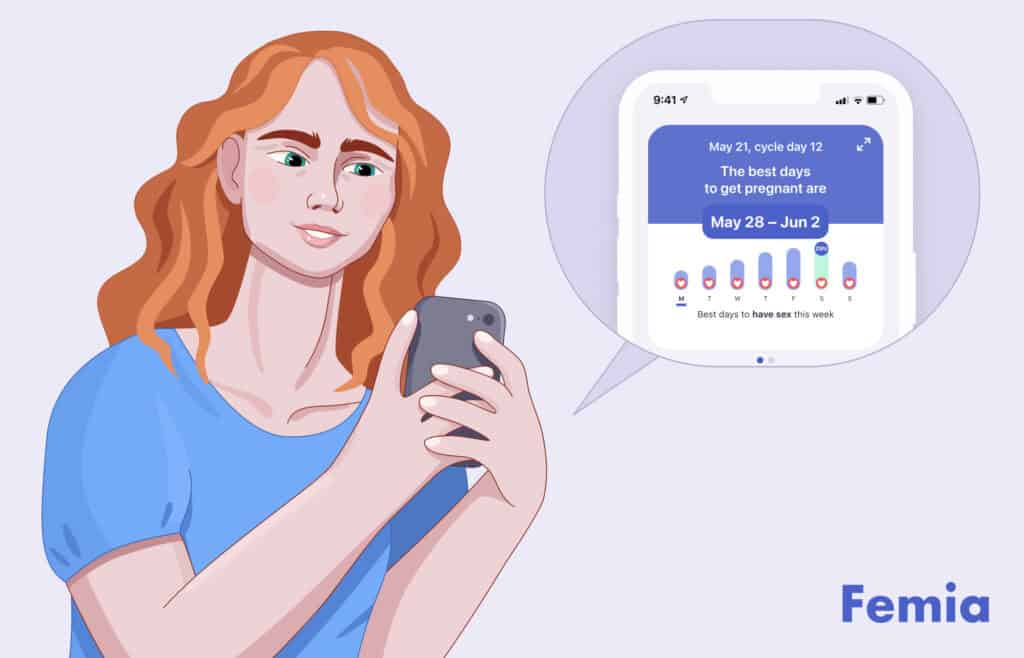
Does ovulation pain feel like menstrual pain?
Many women may often confuse menstrual and ovulation pain. In fact, they can feel very similar, and at some point, you might think that you are menstruating. It can be challenging to differentiate between the two types of pain unless you are tracking your cycle, as the sensations can be very similar.
Pain during ovulation (also called Mittelschmerz) can last from a few minutes to even several days, which is certainly uncomfortable. It is usually felt on one side of the lower abdomen, depending on which ovary releases the egg (the side may vary from month to month). The pain does not usually spread to the hips and lower back, which may occur with menstrual pain.
Tracking ovulation
We’ve written before about changes in cervical mucus and changes in basal temperature, which can help you track ovulation after stopping birth control. These two indicators, however, are not the most reliable. For example, many factors can greatly change your basal temperature (illness, stress, alcohol consumption). There are more reliable ways to track your fertility.
Fertility apps like Femia can be invaluable for tracking ovulation, because they calculate when you might start ovulating based on the data you provide. Femia allows you to easily track your cycle to ensure you have the best chance of conceiving.
Ovulation predictor kits test your urine for luteinizing hormone (ovulation trigger), which surges 24 to 48 hours before ovulation.
Saliva ferning kits analyze patterns in dried saliva, which can change due to hormonal fluctuations during the menstrual cycle. A ferning pattern can indicate the approach of ovulation. However, they are quite expensive, and can also vary in accuracy.
Remember that there is no 100% test for ovulation, and therefore to increase your chances of becoming pregnant, it is better to have sex before and during predicted ovulation. This will improve the likelihood of conception, because sperm can stay in the female body for up to five days.
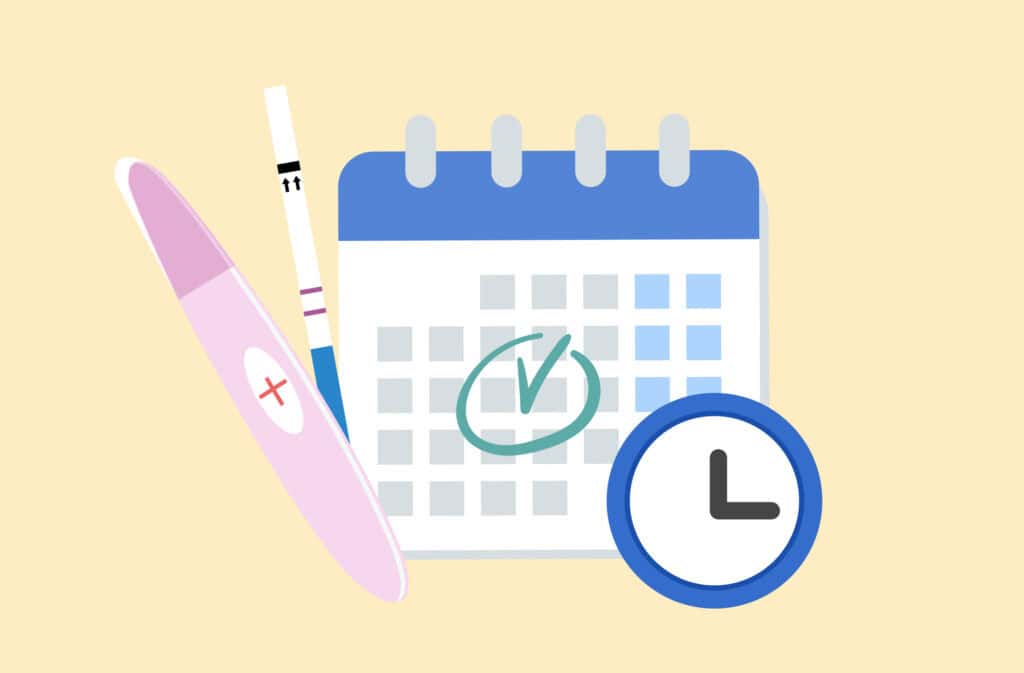
Not ovulating after birth control
Ovulation may not begin immediately after stopping contraceptives. This is completely normal, because your body needs time to recover. Here are some reasons you might experience a delay in ovulation returning:
Hormonal imbalances. Disruptions in hormonal balance, possibly exacerbated by long-term use of contraceptives, can delay the return of regular ovulation.
Stress. Physical or emotional stress can impact hormone production and the regularity of the menstrual cycle.
Age. Older age can sometimes lead to longer recovery times for the menstrual cycle to normalize after stopping contraceptives.
However, that’s not all. Sometimes your contraceptives may be the reason why you still haven’t started ovulating.
Your pills may be the reason
Some progestins (which we’ll talk about below) and high-estrogen pills can greatly lengthen the recovery period. This can prevent ovulation.
Femia offers the most accurate tool for determining fertile days
Progestins that may delay your ovulation
Progestins are synthetic hormones that mimic the effects of the real, natural hormone estrogen. They both prevent ovulation. Progestins are divided into four generations: the first- and second-generation hormones are not as potent but have androgenic effects; third- and fourth-generation progestins, however, have fewer androgenic effects or none at all. These are the hormones:
- Desogestrel
- Gestodene
- Norgestimate
- Drospirenone
Newer synthetic hormones are more powerful, and because they have such a strong effect on your body, it will take your body much longer to return to your menstrual cycle.
In addition, these hormones have a long half-life. One study showed that they can remain in your body for a long time even after you stop taking them, which can result in not ovulating after birth control.
When to see your doctor
Sometimes, it can be difficult for your body to wean itself off the medicine it is used to receiving every day. Therefore, we should definitely expect certain symptoms that make our lives more uncomfortable. Some symptoms, however, are not normal.
If you experience any of the following, we strongly recommend contacting your healthcare professional:
- Any severe, prolonged pain. Pay attention to any symptoms, because it does not have to be pain in the lower abdomen. Headaches and migraines that don’t usually occur are signs that shouldn’t be ignored.
- Very heavy bleeding during your period can also signal that something is wrong. If your tampon is leaking every hour or two for several hours, or if your period lasts more than 7 days, it is best to see a healthcare provider.
- Sudden mood swings, a depressed or very anxious state (unusual for you) should also motivate a doctor’s visit.
- If your cycle has not returned 6 months after you stopped birth control pills.
Don’t hesitate to contact your healthcare professional in any case if you think something is wrong. If you are experiencing extreme fatigue, nausea, and vomiting, don’t wait any longer. The sooner you see a doctor, the sooner you will find a cause and solution to your symptoms.
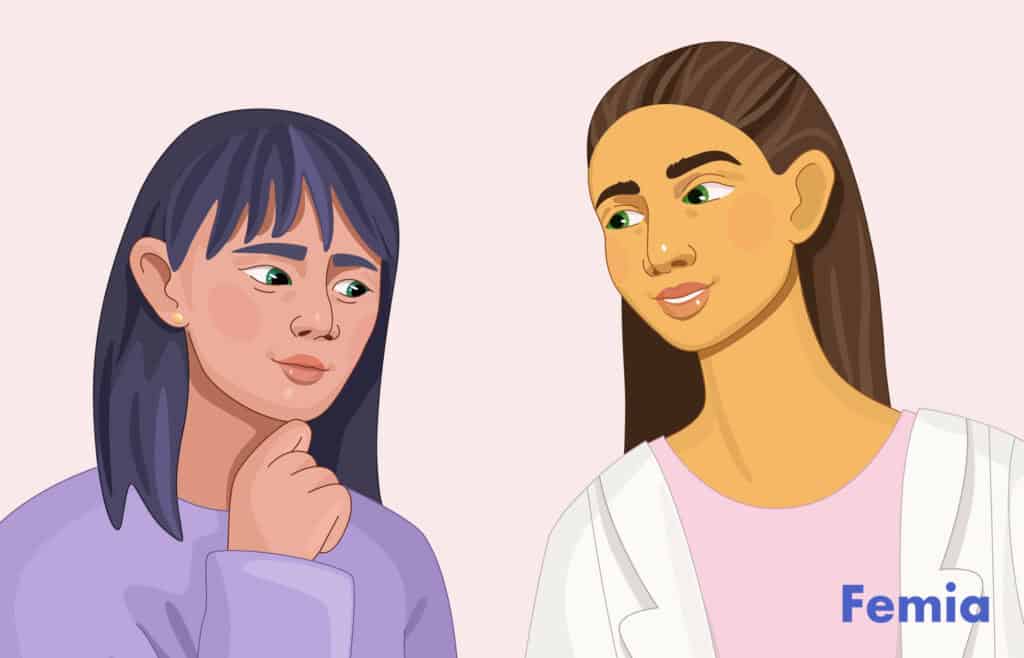
Questions from the Femia community
Is it normal to have irregular periods after stopping the pill?
Yes, it can be normal to experience irregular periods as your body readjusts to its natural cycle. However, if periods stay irregular after several months of adaptation, it is best to consult a healthcare provider.
Can stopping the pill cause ovulation pain?
Yes, some women may experience ovulation pain or changes in their cycle after stopping the pill due to hormonal adjustments.
How can I increase my chances of ovulating sooner after stopping the pill?
Maintaining a healthy lifestyle, managing stress, and monitoring your cycle can help support the return of regular ovulation.
Can I get pregnant immediately after stopping the pill?
Yes, it is possible to get pregnant as soon as you start ovulating again, which can happen within a few weeks for some women. However, if it doesn’t happen right away, there's no need to worry. It's quite common and may just mean your body needs a bit more time to recover.
The bottom line
It is possible to conceive soon after ovulation resumes, which could occur within a few weeks after stopping birth control for some women. However, if this doesn’t happen right away, don’t worry, as it’s not guaranteed. Your body may just need more time to recover fully.
After stopping birth control pills, it’s crucial to allow your body to rest and recuperate. While ovulation may resume immediately, we advise you to be patient. If you’re wondering “How long after stopping the pill will I ovulate?”, give your body some time. You should focus on showing yourself love and patience during this recovery phase to optimize your chances of conceiving.
If you sense any issues, don’t hesitate to seek help from a healthcare professional promptly.
References
- “Cycle characteristics after discontinuation of oral contraceptives.”Gnoth C., Frank-Herrmann P., Schmoll A., Godehardt E., Freundl G. 2002. Available at: https://www.tandfonline.com/doi/abs/10.1080/gye.16.4.307.317.
- “Return of Ovulation after Discontinuance of Oral Contraceptives.”Rice-Wray E., Correu S., Gorodovsky J., Esquivel J., Goldzieher JW. 1967. Available at: https://www.sciencedirect.com/science/article/pii/S001502821636246X.
- “Stopping the Pill? 10 Ways Your Body May Change.” WebMD Editorial Contributors. 2023. Available at: https://www.webmd.com/sex/birth-control/stopping-pill-10-ways-body-changes.
- “A delayed ovulation of progestin-primed ovarian stimulation (PPOS) by downregulating the LHCGR/PGR pathway.”Yating Xie, Wenya Guo, Xi Shen. 2023. Available at: https://www.ncbi.nlm.nih.gov/pmc/articles/PMC10372826/.
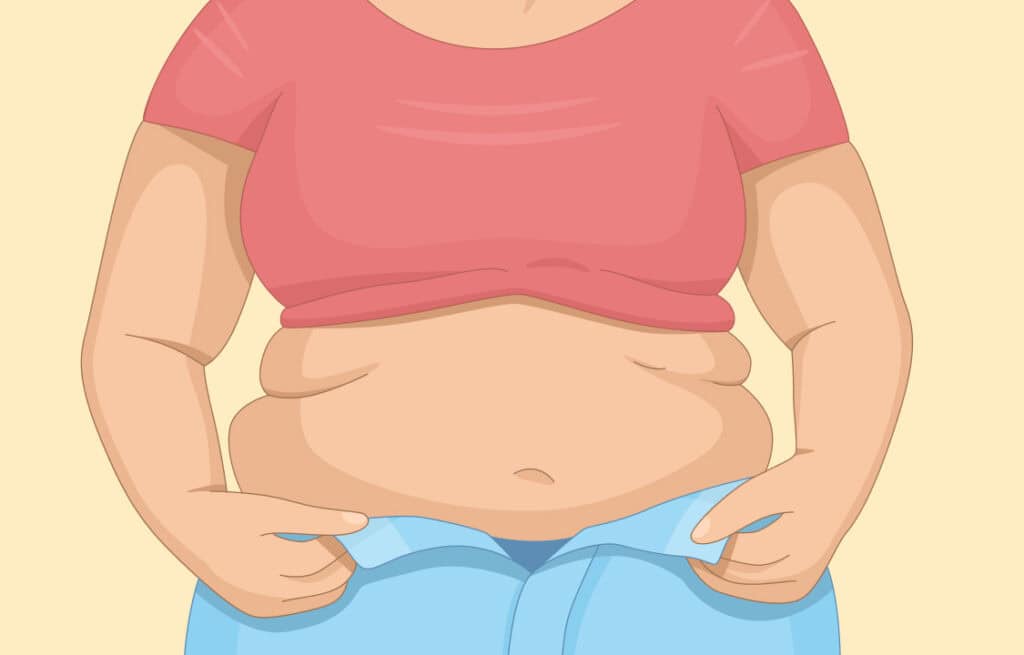
Discover the reasons behind PCOS belly and learn effective strategies to manage and reduce abdominal fat caused by polycystic ovary syndrome.
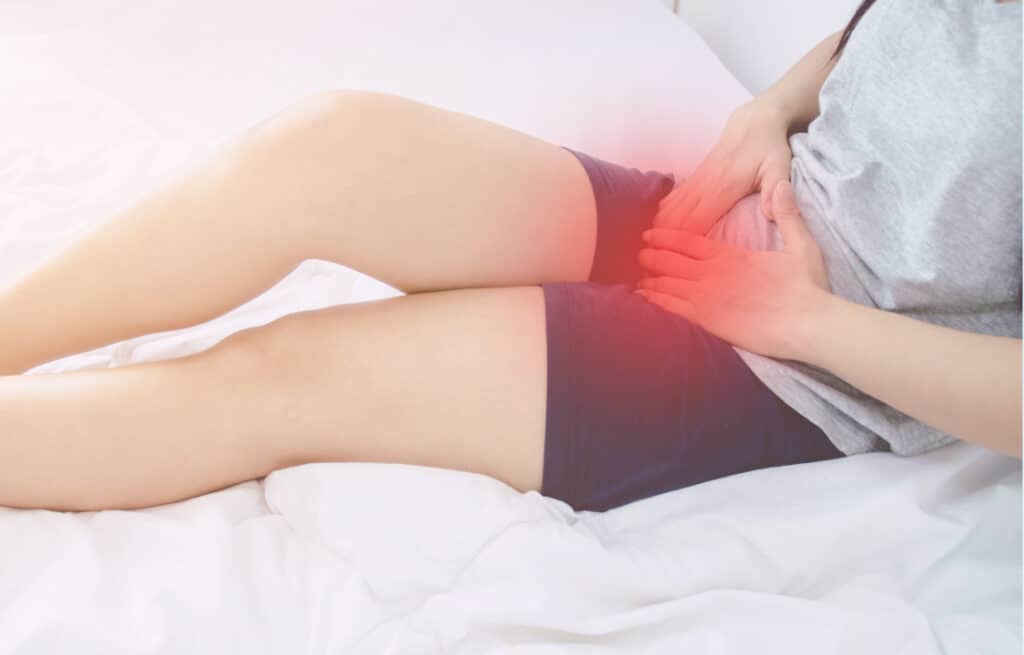
Discover the common causes of burning after sex, from friction to infections, and explore solutions for prevention and treatment. Learn when to seek medical advice.
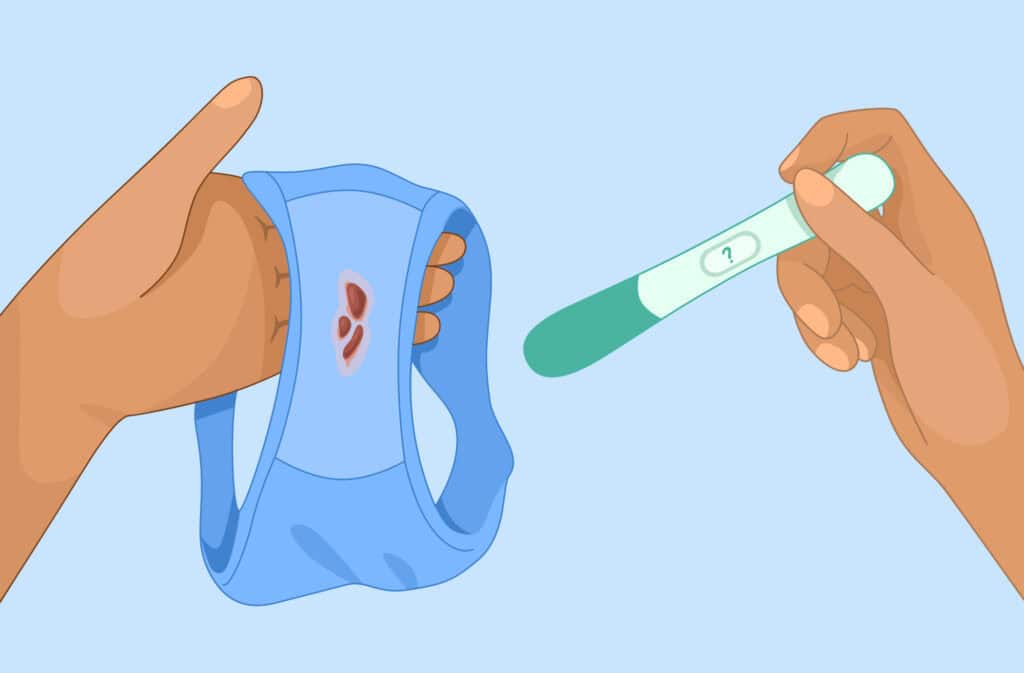
Not sure you’re experiencing Plan B spotting vs implantation bleeding? Learn how to tell the difference based on timing, flow, and symptoms.
